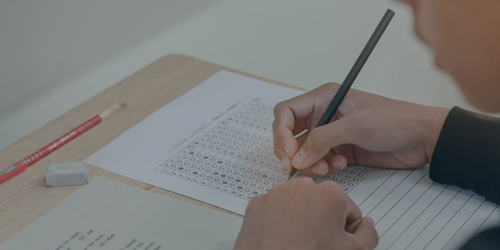We live in a time where different kinds of news reach to us through different platforms in different ways. You will be amazed to know that a team of hundreds or more people work day and night to present a news report of one hour or to write a news of 2-3 paragraphs. Due to the prudent effort of these people, journalism has emerged as the fourth pillar of democracy. Journalists are those professionals who keep the public aware and work as the watch-dogs of society. It requires a great sense of responsibility and devotion to truth to become a journalist because common people blindly trust what they say. Journalism and Mass communication is that career path which gives fame, prestige and money at a time that is why career in journalism engrosses many students towards it. And many students who don’t have much idea about this course would get a clear idea after reading this article.

Eligibility and skills required for journalism and mass communication
- The minimum eligibility required to get admission into the bachelor degree in journalism is 10+2 certificate from any recognized board (having an aggregate of 40%).
- For the Post graduate degree courses, the minimum qualification is having a graduate degree.
- A student from any stream (science, commerce or arts) is eligible to apply for mass communication courses in India.
- Some institutes also offer one year certificate courses in journalism for which eligibility is 10+2.
- Apart from this every institute and universities conduct their separate entrance exams includes interviews, group discussion, and written tests to determine one’s eligibility for the course.
Keep in mind that, the courses can only give knowledge in the technical aspects but cannot build someone into an excellent journalist. For this one must be diplomatic, confident and structured, must have a nose for news, ability to write and produce news stories in correct and appealing style. He/She must have the capability of accepting criticism and the skill of filtering relevant facts from the irrelevant ones.
Career options in journalism and mass communication
Electronic media
Thousands of television channels of various interests are working in our country as a result of which the career opportunities in the field of electronic journalism and mass communication has increased manifold. The career options in electronic media are:
- Field Reporter
- Researcher
- Content Writer and editor
- Programme Editor
- Field and In-house Correspondent
- News anchor/ Event Anchor
- Narrator
- News Analyst
- Video journalist
- Audiovisual Production Specialist
- Public Relations Officer
- Cinema Projectionist
- Media Marketing Executive
- Advertising Executive
Print Media
This is one of the oldest and most popular medium of mass communication. The career options print media holds for this course are as follows-
- Chief Editor
- Senior Editor
- Editor
- Associate Editor
- Assistant Editor
- Magazine features editor
- Magazine journalist
- Columnist
- Reporter
- Correspondent
- Photo journalist
- Graphics designer
- Cartoonist
Web media
The Internet is fast emerging as a global electronic community mode interconnecting millions of people. It provides updated news content at no cost. Here competition is tough. So, the web journalist has to make the news sharp and interesting because many web surfers may turn off the page without reading them entirely if they don’t find it interesting. In web media one can work as-
- Content writer
- Blogger
- Video editor
- Graphics editor
- Digital copywriter
- Market researcher
- Multimedia specialist
- Public relations officer
- Science writer
- Translator
Apart from all the above mentioned careers options one can also work in the following fields for both government and private organisations after acquiring the journalism and mass communication degree-
- Copywriter
- Corporate communications specialist
- Grant writer
- Public relations specialist
- Social media specialist
- Technical writer
- Freelance writer
Major cities for studying mass communication:
- Delhi
- Bangalore
- Chennai
- Hyderabad
- Kolkata
- Ahmedabad
- Pune
- Mumbai
Journalism courses:
| Programme | Duration |
|---|---|
| Bachelor’s degree in Journalism | 3 years |
| Bachelor’s degree in journalism and mass communication | 3 years |
| Bachelor’s degree in script writing | 3 years |
|
Bachelor’s degree in Mass Communication, Journalism and Advertising |
3 years |
| Bachelor’s degree in Media Science | 3 years |
| Diploma in Journalism | 1 years |
| Diploma in Journalism & Mass Communication | 2 years |
| Master’s degree in journalism | 2 years |
| Master’s degree in Mass Communication, Advertising & Journalism | 2 years |
| MBA in Mass Media Management | 2 years |
Top journalism colleges:
| College | Courses offered | Fees |
|---|---|---|
| LNCT University Lucknow | Bachelor’s degree in journalism and mass communication | 50,000 INR |
| Chandigarh University |
|
|
| Acharya Institutes Bangalore | Bachelor’s degree in Journalism | 40,000 INR |
| IIMC, New Delhi |
|
|
| Grace College Rajkot | Bachelor’s degree in journalism and mass communication | 13,600 INR |
| IMS, Noida | Bachelor’s degree in journalism and mass communication | 1,18,000 INR |
FREQUENTLY ASKED QUESTIONS (FAQS) ON JOURNALISM AND MASS COMMUNICATION
WHICH ARE THE TOP INSTITUTIONS IN INDIA TO STUDY JOURNALISM AND MASS COMMUNICATION?
- Indian Institute of Mass Communication (IIMC) Delhi
- Xavier's Institute of Communication (XIC)
- Asian College of Journalism (ACJ)
- Symbiosis Institute of Mass Communication (SIMC)
- AJ Kidwai Mass Communication Research Centre (AJKMCRC)
- Mudra Institute of Communications, Ahmedabad (MICA)
- Indian Institute of Journalism & New Media, Bangalore (IIJNM)
- Department of Journalism and Mass Communication, BHU
- Department of Communication and Journalism, Pune
- Bharati Vidya Bhavan's Sardar Patel College of Communication and Management, Delhi
WHAT ARE THE ENTRANCE EXAMS CONDUCTED IN INDIA FOR THE ADMISSION OF J&MC?
Institutions conduct individual entrance exams like ACJ Entrance Exam, AUCET, IP College for Women Entrance Exam, IPU CET, Jamia Milia Islamia Entrance Exam, MASCOM Entrance Exam, MET, SET, XIC OET for the admission to this course. If you want to study in any of the Indian Institute of Mass Communication (IIMC), then you have to qualify IIMC entrance exam.
WHAT DOES JOURNALISM AND MASS COMMUNICATION SPECIALIZATION TEACH?
- The course teaches the fundamental skills of journalism, including interview techniques, research and meeting deadlines
- Teaches to write extensively in the three primary narrative journalistic forms: news, features and news features
- Incorporate audio, digital photography and videography in journalistic webcasts and podcasts
- Teaches to examine the contemporary media environment, including corporate ownership, censorship, and the issues involving privacy, freedom of expression and public interest
- Teaches the professional codes of conduct, artistic and social responsibility, and the ethics of reporting
- Provides opportunities to join the experienced professionals of this industry, giving the students first-hand experience in the behind-the-scenes production process.
WHAT TYPE OF QUESTIONS ONE CAN EXPECT IN A MASS COMMUNICATION ENTRANCE EXAM AT TOP INSTITUTES?
Each of the institutes has different test format but some sections are generic. The segments from which the questions asked mostly are-
General knowledge, English (language, its usage, basic grammar, reading capabilities etc.), Media Aptitude (aptitude and knowledge related to media), Reasoning or Analytical skills, Subjective questions (to assesses candidates writing skills, structural knowledge, language skills, and ability to write on a topic)
WHAT IS THE DIFFERENCE BETWEEN JOURNALISM AND MASS COMMUNICATION?
Journalism is the activity of gathering, analysing, creating, and presenting news and information to a large group of audience. It is a distinct form of communication where the journalist delivers a one-way message, or story to the audience as per his or her observations and discoveries on a particular happening. This type of storytelling is presented in different forms, like Breaking news, Feature stories, Investigative reports, Editorials, Reviews, Blogs.
Whereas, Mass communication is the process of conveying message through the channels of communication including broadcast television, radio, social media, and print media to a large group of anonymous and heterogeneous audience. Even though journalism and mass communication are two different aspects but they are inter related and interdependent on each other.
I WANT TO BECOME A CONTENT WRITER. SHOULD I GO FOR MASS COMMUNICATION DEGREE??
Yes, of course. All print or digital Medias require Content Writers. So, a Mass communication degree with a Degree in English (hnrs) will keep you one step ahead than your competitors. But the thing is that PG in Mass communication will teach you about the technical aspect of all the sectors so you can opt for PG Diploma in Journalism instead. Because, Journalism will be a specialised study focusing on news and content writing for different mediums.
CAN I DO M.PHIL/PHD AFTER PASSING OUT FROM IIMC?
See, till now IIMC has not got the university status. So, IIMC provides diploma certificate and to pursue M.Phil and Ph.D. you need a degree certificate. But, recently UGC has given a green signal to the proposal of making IIMC a deemed university.











